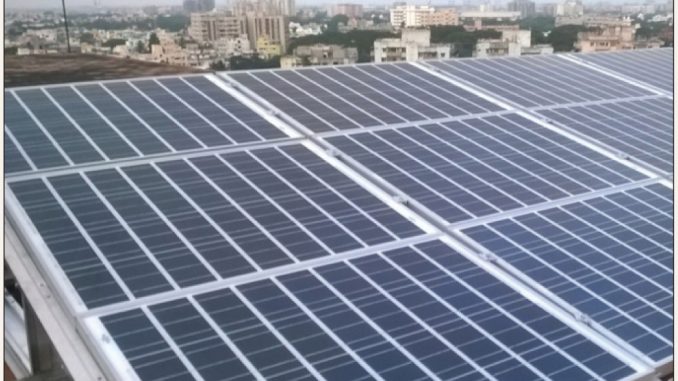
In the late 1880s, Nikola Tesla and Thomas Edison became embroiled in the “War of the Currents” in which alternating current (AC) emerged as the winner, owing to its ability to transmit power over longer distances. However, with the emergence of distributed power generation through renewable sources such as solar power, direct current (DC) has started making inroads. Of late, the practicality of converting DC power into AC using inverters and then back to DC for consumption is being questioned.
According to Cygni Energy, this unnecessary conversion can lead to 30-50 per cent losses and, therefore, a right solution coupled with DC appliances can reduce the energy consumption of households by up to 50 per cent. This is what the company has set out to do – create energy efficient DC-based solutions using solar power for homes and businesses. The company offers solutions that primarily work with DC systems to ensure minimal loss of energy at any step from generation to consumption.
The company’s flagship product, Cygni-IBIS is an integrated lithium-ion battery-based inverterless system which runs on solar power. In the absence of solar, it is powered by either lithium-ion batteries or the main power supply. The system operates on 48 V DC to offer higher flexibility and efficiency. In addition to running lights and fans, the system can be used to operate larger appliances like TVs and coolers. Cygni claims that IBIS can offer up to 50 per cent reduction in electricity bills and 40 per cent reduction in overall costs. Apart from powering rural households, the solution can also cater to the energy requirements and backup needs of urban homes.
The company also intends to bring in a certain level of transparency to energy consumption. With the new energy efficiency and conservation trends across the globe, people are making efforts to save energy. Currently, consumers can keep track of electricity consumption through their monthly bills, which only reflects the total consumption. In order to avoid energy wastage, the company offers an integrated mobile application with the system, which helps monitor energy consumption on a real-time basis.
Cygni has raised an angel investment of $1.5 million and its key partners are the IITM Incubation Cell, the IITM’s Rural Technology Business Incubator and Oikocredit. In 2016-17, the company achieved a turnover of $4.8 million and aims to double this revenue to $10.2 million by the end of 2017-18. In addition, the company plans to raise an equity investment of $10 million towards the end of 2017-18 for expanding its manufacturing line, as well as debt capital of $10 million to fund its working capital requirements. The funds would ultimately help Cygni to power over 1 million homes in the next three to five years using the inverterless technology.
The company, however, has been facing several challenges. According to Venkat Rajaraman, chief executive officer, Cygni Energy, “One of the biggest challenges faced by the company is the lack of standardisation with respect to 48 V DC power systems.” While the company’s products are approved by the government, there are no national or international standards in place. Without these standards, building a DC ecosystem can be difficult. To this end, Cygni has been in touch with both the Bureau of Indian Standards and the International Electrotechnical Commission for developing the necessary standards.
Cygni hopes to benefit from the recently launched Saubhagya scheme, which could offer a huge opportunity for the company to provide its solutions for stand-alone solar-based systems to power households in remote and inaccessible areas. In addition, the company aims to foray into the rapidly growing Indian power backup and inverter market worth $2.3 billion.
Approximately 180 million people in the country, mostly in rural areas, do not have access to electricity. Therefore, India has a dual electrification imperative – improving energy access and going clean. “Cygni’s mission is to power a billion dreams and to achieve this goal, the company hopes to create awareness about both solar energy and its solutions among city dwellers,” says Rajaraman. Solar has long been perceived as a rural solution, which can power only bare necessities, which is no longer true. With the availability of highly efficient solar panels and storage solutions becoming more economical, each house has the potential to go “off-grid”.

